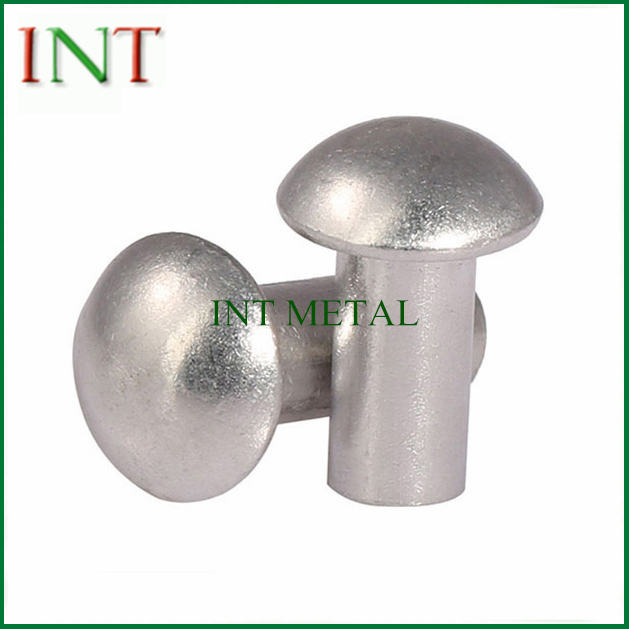The Unyielding Shield: Corrosion Resistance and Longevity of Aluminum Rivets
2023-11-30
Introduction:
In the realm of fastening solutions, the battle against corrosion is a critical factor influencing the longevity and reliability of components. Aluminum rivets emerge as stalwart contenders in this arena, boasting impressive corrosion resistance that stands tall among other materials. In this blog, we delve into the comparative corrosion resistance of aluminum rivets, exploring the factors that contribute to their durability and prolonged service life.
1. Inherent Corrosion Resistance:
Aluminum, by its very nature, possesses inherent corrosion resistance. Unlike ferrous materials such as steel that can rust when exposed to moisture, aluminum forms a protective oxide layer when exposed to air. This oxide layer acts as a shield, preventing further corrosion and enhancing the longevity of aluminum rivets.
2. Comparative Analysis with Steel:
When compared to steel rivets, aluminum rivets showcase superior corrosion resistance. Steel is prone to rust when exposed to environmental elements, and this susceptibility can compromise the integrity of fasteners over time. In applications where moisture is prevalent, such as marine environments or outdoor construction, aluminum's resistance to corrosion positions it as a preferred choice.
3. Galvanic Corrosion Mitigation:
Galvanic corrosion, a common concern in mixed-metal applications, is mitigated by the use of aluminum rivets. When aluminum comes into contact with other metals, the oxide layer acts as a protective barrier, reducing the risk of galvanic corrosion. This property further enhances the durability of aluminum rivets in diverse applications.
4. Coating Options for Added Protection:
While aluminum rivets exhibit natural corrosion resistance, additional protective coatings can be applied to further enhance their longevity. Coatings such as anodizing or special corrosion-resistant finishes provide an extra layer of protection, making aluminum rivets even more resilient in challenging environments.
5. Environmental Exposure and Atmosphere:
The specific environmental conditions and atmosphere to which aluminum rivets are exposed play a crucial role in their longevity. In marine environments, where saltwater is a significant factor, aluminum rivets demonstrate resilience due to their corrosion-resistant properties. Similarly, in urban or industrial settings with pollutants, the protective oxide layer shields the rivets from corrosion.
6. Aluminum Alloy Composition:
The choice of aluminum alloy also influences corrosion resistance. Different alloys offer varying degrees of resistance to corrosion, allowing engineers and manufacturers to select the most suitable alloy for the specific environmental conditions in which the rivets will be used.
7. Maintenance Practices:
Regular maintenance practices can significantly impact the longevity of aluminum rivets. Keeping surfaces clean and free from contaminants, as well as promptly addressing any signs of corrosion, contributes to the extended service life of the rivets.
8. Proper Installation Techniques:
The way aluminum rivets are installed can influence their corrosion resistance. Proper installation techniques, including sealing joints effectively and avoiding unnecessary stress on the rivets, contribute to their overall durability.
Conclusion:
The corrosion resistance of aluminum rivets places them in a league of their own, outshining other materials, especially in environments prone to moisture and atmospheric contaminants. The protective oxide layer, galvanic corrosion mitigation, and the option for additional coatings make aluminum rivets a robust choice for projects requiring longevity and reliability. As industries continue to prioritize materials that can withstand the test of time, aluminum rivets stand as formidable guardians against the relentless forces of corrosion, ensuring that their role in engineering excellence remains unblemished.



